detail profile roger souza
Peran Yang Di Mainkan Roger Souza
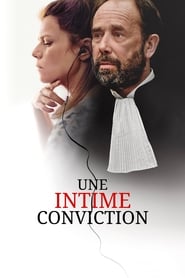 Ever since she served on the...
Ever since she served on the...Conviction 2019
Ever since she served on the jury during his trial, Nora has been convinced that Jacques Viguier is innocent, despite him being accused of murdering his wife. Following an appeal by the public prosecutor’s office, and fearing a miscarriage of justice, she convinces a leading lawyer to defend him during his second trial, on appeal. Together, they will put up a tenacious fight against injustice.
 Fanny is the second part of...
Fanny is the second part of...Fanny 2013
"Fanny" is the second part of the "Marseille trilogy", made by Marcel Pagnol with the generic name of "Marius, Fanny and César". Fanny falls in love and is abandoned by Marius. Now she discovers she is pregnant. Her mother and Marius's father, César, persuade her to accept the romantic advances of a much older man. To save face, Fanny accepts to marry Honoré Panisse, a rich merchant of the Vieux Port, 30 years her senior who will recognize her son.
 Marius takes place in Marseilles Old...
Marius takes place in Marseilles Old...Marius 2013
"Marius" takes place in Marseilles' Old Port, at the La Marine Bar, owned by César and his son Marius. Marius' biggest dream is to embark on one of the boats passing by his dad's bar and to set off to a faraway land. Fanny, a young and pretty seafood peddler, has secretly been in love with Marius since her childhood; Marius, never admitting it, has always loved Fanny. One day, a sailor drops by La Marine and offers him a job on an exploratory ship. Trying to hold him off and to make him jealous, Fanny confesses his love to him and provokes a fight between Marius and one of César's old friends, Panisse, a boat merchant, who despite his old age, has been courting Fanny for a while. Torn between the call of the sea and his love for her, Marius abandons his dream to be with Fanny who gives herself to him. As César and Honorine, Fanny's mother, are getting ready for the wedding, Marius changes his mind, drawn back to the call of the sea.
 Maxence Lafourcade raises pigs in the...
Maxence Lafourcade raises pigs in the...No Pasaran 2009
Maxence Lafourcade raises pigs in the Pyrenees. His life changes when he learns that a highway will cross his his farm. To face the cynical deputy mayor and his project, he must make an unnatural alliance with a disillusioned lawyer, whose daughter Maxence falls in love with.
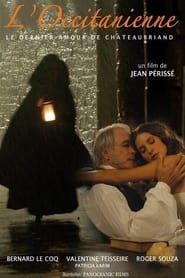 One stormy evening in 1829 the aging...
One stormy evening in 1829 the aging...Chateaubriand's Last Love 2008
One stormy evening in 1829, the aging writer René de Chateaubriand, takes refuge in a mountain retreat at Cauterets, a small town in the Pyrenees. Here, he meets Léontine de Villeneuve, an aristocratic woman forty years his junior, who ignites his passion and who seems to be as equally attracted to him. Under the watchful gaze of the maître d'hôtel, Chateaubriand embarks on what will be his last great love affair, with a woman he will later refer to in his writings as L'Occitanienne.
 In a time and place indeterminate...
In a time and place indeterminate...Time Has Come 2005
In a time and place indeterminate a bandit has kidnapped Rixo Lomadis Bron’s daughter. Bron is a wealthy landowner who reigns over the shepherds of the Purple Mountain. The time has come when Rixo Lomadis Bron accuses Manjas-Kebir of killing his daughter and urges all the country’s inhabitants to track down the assassin. It’s the time when Radovan Remila Stoï, the land’s greatest warrior, rises up against this foolhardy act which has every chance of leading to war...
 The young sickly girl Bernadette comes...
The young sickly girl Bernadette comes...Lourdes 2000
The young, sickly girl Bernadette comes from a poverty-stricken family. When the Virgin Mary appears to her in a cavern near Lourdes, no one takes the girl seriously, even when she digs up a wellspring at the Virgin's instructions The local authorities even try to hush up the entire incident. In vain, however, because when Empress Eugénie requests water from the spring for her sickly son, they are forced to acquiesce. And even the local priest is finally convinced. While taking his tuberculosis-stricken fiancé Claire to a sanatorium, the young doctor Henri Guillaumet meets Bernadette. The water from Lourdes' spring heals Claire's disease overnight, but the scientist in Henri doubts the miracle and wants to expose Bernadette as a liar. It is not until Henri again meets Bernadette, who has in the meantime become a nun and works as a nurse, that he finds a way to balance belief and modern science. And his love for Claire is strengthened as well.
 Several mountaineers attempt to climb La...
Several mountaineers attempt to climb La...La Face de l'Ogre 1988
Several mountaineers attempt to climb La face de l'Ogre near Chamonix. Their starting point is a small mountain hotel from where many tourists observe them. Among these is Hélène, who has been staying there for a few weeks but who is excluded by the other tourists. Then she meets a city girl named Marion and they immediately become friends. She tells him that she is waiting for her husband who has tried to climb the mountain and should be back any day. But then the weather turns sour, which causes hope to wane but also brings women together in anxiety. Finally the weather improves and Marion's husband comes back but not Hélène's and she must finally accept the truth.
 Rex and Saskia a young couple...
Rex and Saskia a young couple...The Vanishing 1988
Rex and Saskia, a young couple in love, are on vacation. They stop at a busy service station and Saskia is abducted. After three years and no sign of Saskia, Rex begins receiving letters from the abductor.
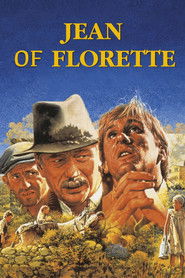 In a rural French village an...
In a rural French village an...Jean de Florette 1986
In a rural French village, an old man and his only remaining relative cast their covetous eyes on an adjoining vacant property. They need its spring water for growing their flowers, and are dismayed to hear that the man who has inherited it is moving in. They block up the spring and watch as their new neighbour tries to keep his crops watered from wells far afield through the hot summer. Though they see his desperate efforts are breaking his health and his wife and daughter's hearts, they think only of getting the water.
 When an American tourist is murdered...
When an American tourist is murdered...The Suspects 1974
When an American tourist is murdered in the south of France, the police must investigate. In this movie, the police inspector re-creates the girl's journeys through France until the murder is solved. Suspicions are narrowed down to four possible perpetrators early on, and flashbacks illuminate the roles each one played in the girl's vacation.

 A boxer is unfairly suspected by...
A boxer is unfairly suspected by...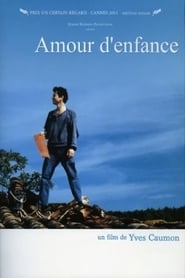 Paul returns home to the family...
Paul returns home to the family... The story of Robert HughesLambert who...
The story of Robert HughesLambert who... How the mothers of a deprived...
How the mothers of a deprived...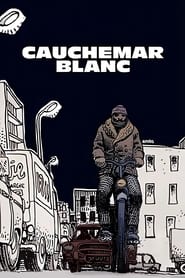 Four racists plan to assault a...
Four racists plan to assault a... An old man teaches a young...
An old man teaches a young... In this the sequel to Jean...
In this the sequel to Jean...